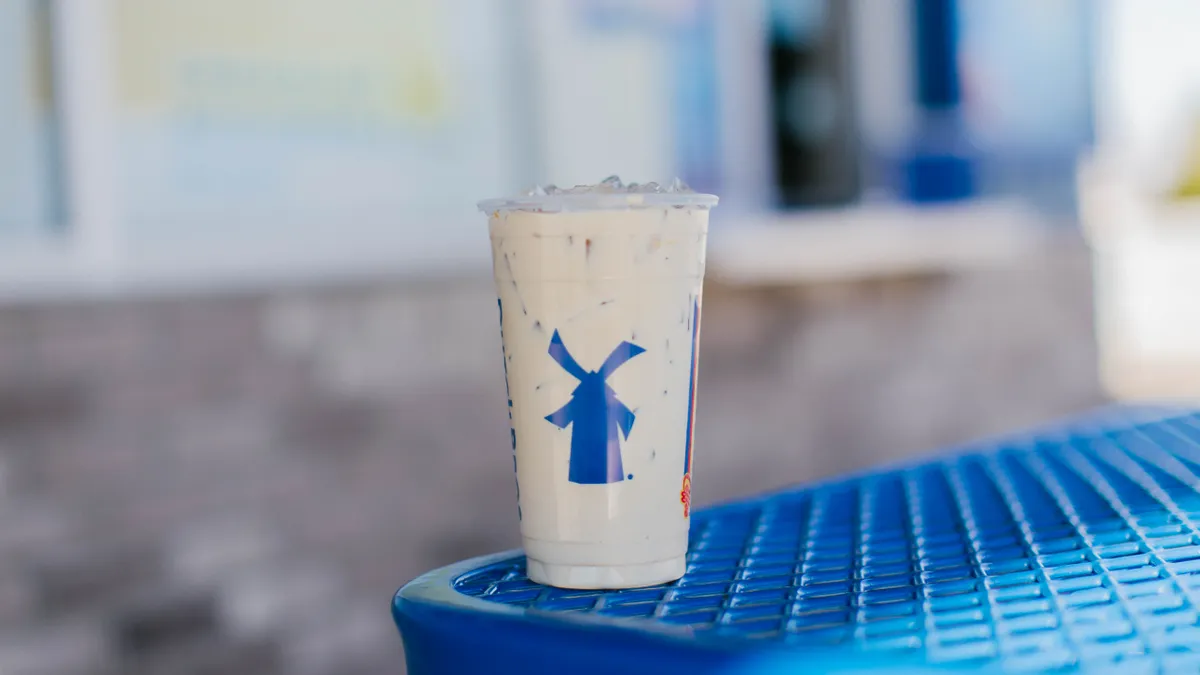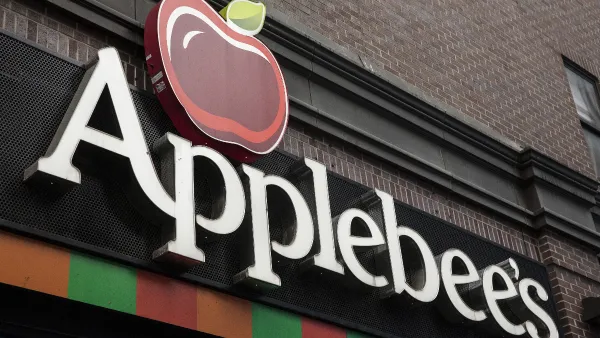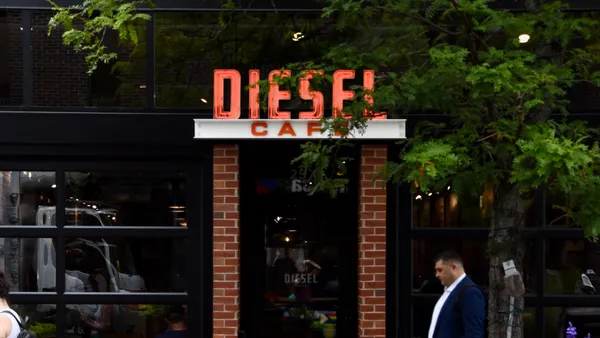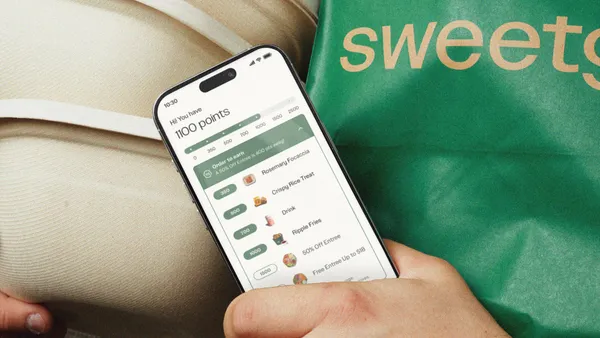UPDATE: Sept. 15, 2021: The coffee chain will go public on the New York Stock Exchange Wednesday and raised the price of its shares to $23 each, an increase from its previously announced pricing of $18 to $20 per share, according to a company release. This share price gives Dutch Bros a valuation of $3.8 billion. The company sold 21.05 million shares, raising $484.2 million. The offering is expected to close on Sept. 17, subject to customary closing conditions.
UPDATE: Sept. 7, 2021: Dutch Bros Coffee on Tuesday set terms for its initial public offering, targeting a valuation of more than $3.3 billion. The coffee chain plans to raise more than $421 million in its IPO and will offer 21.1 million shares priced at $18 to $20 each.
UPDATE: Aug. 23, 2021: Dutch Bros Coffee on Friday filed documents for its initial public offering with plans to raise $100 million. The company will trade on the New York Stock Exchange under the ticker "BROS."
The coffee chain's average unit volumes rose 3% in 2020 to $1.7 million, and its adjusted EBITDA jumped 43% last year to reach $70 million. Revenue also rose 37% in 2020 to $327.4 million.
"We believe we can capture share of any experience where customers seek to consume great beverages on the go," Dutch Bros said in its filing. "Customers are increasingly seeking new and differentiated beverages and the ability to customize these beverages with a multitude of flavor options."
Dive Brief:
- Oregon-based coffee chain Dutch Bros has confidentially submitted paperwork to the Securities and Exchange Commission with the intent to go public. The number of shares for its initial public offering has not been determined yet and is subject to the SEC's review process, market and other conditions, according to a press release.
- Founded in 1992, Dutch Bros has grown to over 420 locations in 11 states. Former CEO and co-founder Travis Boersma told Forbes the chain could add up to 400 new outlets in the next three to five years, which would nearly double its footprint.
- This filing comes as U.S. initial public offerings have surpassed the 2020 record with more than six months remaining in the year, driven by pent-up demand for investments after a year of crisis, low interest rates and high corporate valuations. Krispy Kreme has already filed an IPO this year and Torchy's Tacos and Sweetgreen are rumored to be considering public debuts as well.
Dive Insight:
Dutch Bros was on an ambitious expansion tear prior to this SEC filing, with 53 new units opening in 2020 and another 85 expected this year. There could be growing pains ahead, however. The company roasts all of its coffee beans in its hometown of Grants Pass, Oregon, and maintaining that supply could pose a challenge as it speeds up its proliferation with investor funding.
Still, the concept seems ripe for investor and consumer interest. The chain's local hook can create a consumer perception of superior quality that could differentiate it from coffee giants Starbucks and Dunkin'. Further, 97% of Dutch Bros formats are already drive-thru locations. Because of that, Dutch Bros doesn't offer third-party delivery and has established a strong and growing suburban footprint.
In other words, it's ahead of the game compared to coffee rivals that are sprinting to add more drive-thrus, which became a table stakes channel during the pandemic, and shifting their focus from metro to suburban markets after commuter traffic dwindled. The Brookings Institute found that populations grew more rapidly in cities than suburbs between 2010 and the first half of 2015, but that trend began to reverse during the 12 months ending July 2016 and the COVID-19 crisis has significantly exacerbated that pattern.
In response to these trends, Starbucks announced in January it is increasing the number of drive-thru locations in Central, Southeast and Southwest U.S. markets, and is now sharply focused on suburban locations. The company also closed hundreds of stores in its shift toward off-premise-geared units.
Dutch Bros continued its growth through the pandemic, which could indicate a strong business model. The coffee segment overall was among the hardest hit during the pandemic, as commuters were taken off the roads in favor of a work-from-home model. According to Bloomberg, independent coffee shop sales were down by 12% last year. Starbucks same-store sales at one point were down 40%. The Allegra Group estimates it will take two years for coffee chains to recover from the crisis. If this IPO gains a significant amount of traction, it could be a sign of recovery for the segment.













